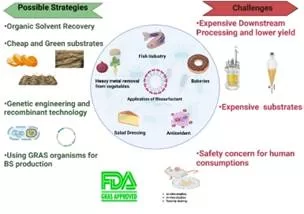The European Medicines Agency (EMA) has granted approval for Ryzneuta (efbemalenograstim alfa), a granulocyte colony-stimulating factor, as a treatment to reduce the duration of neutropenia and the incidence of febrile neutropenia in adults undergoing cytotoxic chemotherapy for cancer. This significant development follows the January meeting of the EMA’s Committee for Medicinal Products for Human Use (CHMP), which reviewed the drug’s efficacy and safety.
Ryzneuta acts on hematopoietic cells by binding to specific cell surface receptors, leading to an increase in the production and differentiation of mature and functionally active neutrophils from bone marrow precursor cells. The CHMP found that the drug effectively reduces the duration of severe neutropenia during the initial cycle of chemotherapy when compared to a placebo.
The most common side effects reported for Ryzneuta include musculoskeletal pain, such as bone and back pain, arthralgia, and pain in the extremities. The drug will be available in a 20-mg solution for injection.
Niapelf Receives Approval for Schizophrenia Maintenance Treatment
The EMA has also granted marketing authorization for Niapelf (paliperidone) for the maintenance treatment of schizophrenia in adults stabilized with paliperidone or risperidone. Paliperidone exerts its effects through antagonist activity at D2- and 5-HT2A receptors. Niapelf, a generic version of Xeplion authorized in the European Union (EU) since 2011, demonstrated satisfactory bioequivalence in trials.
The CHMP specified that Niapelf could be used without prior stabilization with oral treatment if psychotic symptoms are mild to moderate and a long-acting injectable treatment is required. However, initiation of treatment must be overseen by physicians experienced in schizophrenia treatment.
Refusal of Authorization for Nezglyal and Syfovre
In contrast, the EMA recommended refusing marketing authorization for Nezglyal, intended for the treatment of cerebral adrenoleukodystrophy, citing insufficient evidence of its efficacy and concerns about weight gain and edema. The CHMP concluded that the benefits did not outweigh the risks.
A similar refusal was made for Syfovre (pegcetacoplan), developed to treat geographic atrophy caused by age-related macular degeneration. Despite slowing the growth of lesions, the committee determined that Syfovre did not yield clinically meaningful benefits for patients.
Pseudoephedrine-Containing Medicines Face Risk Mitigation Measures
The European Commission will be asked to implement measures to minimize the risks associated with medicines containing pseudoephedrine, which are commonly used to address cold and flu symptoms and allergic rhinitis in individuals with nasal congestion. These measures aim to reduce the potential for posterior reversible encephalopathy syndrome (PRES) and reversible cerebral vasoconstriction syndrome (RCVS), rare conditions that can lead to serious complications.
The CHMP endorsed recommendations from the EMA’s Pharmacovigilance Risk Assessment Committee (PRAC) that pseudoephedrine-containing medicines should not be used in patients with severe or uncontrolled hypertension or those with severe acute or chronic kidney disease. Additionally, healthcare professionals are advised to instruct patients to discontinue pseudoephedrine medicines immediately and seek treatment if they develop symptoms of PRES or RCVS.
The European Commission will consider issuing a legally binding decision across EU member countries based on the CHMP’s opinion.










